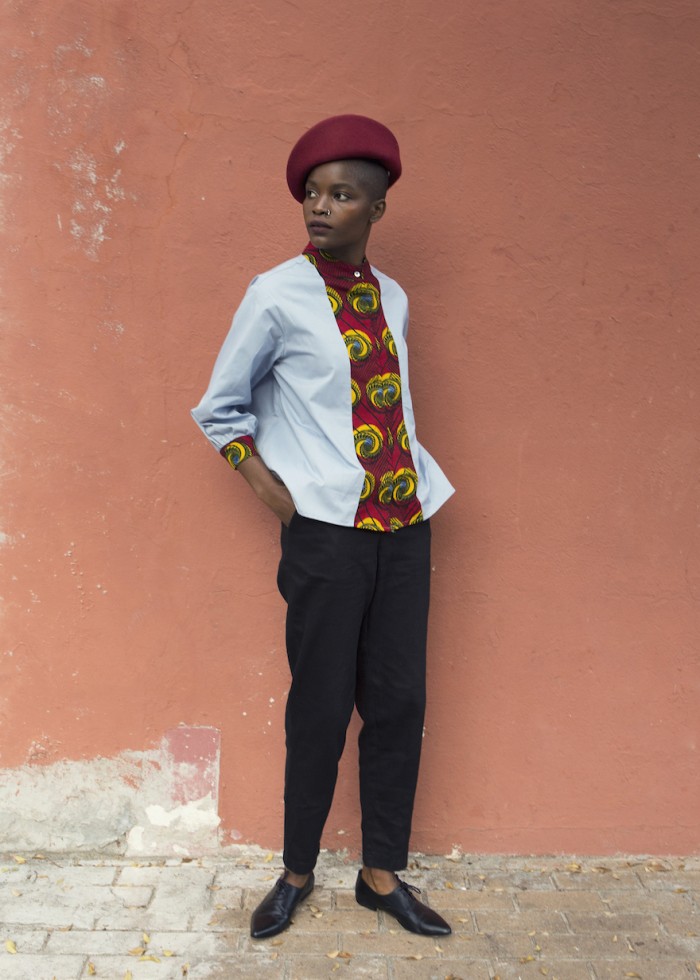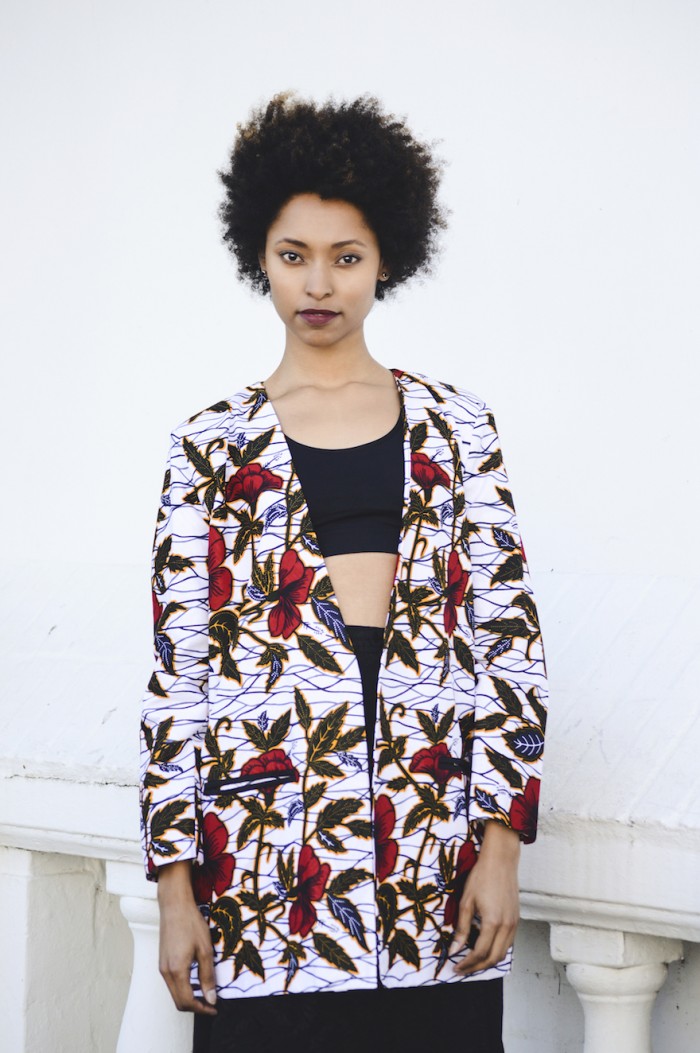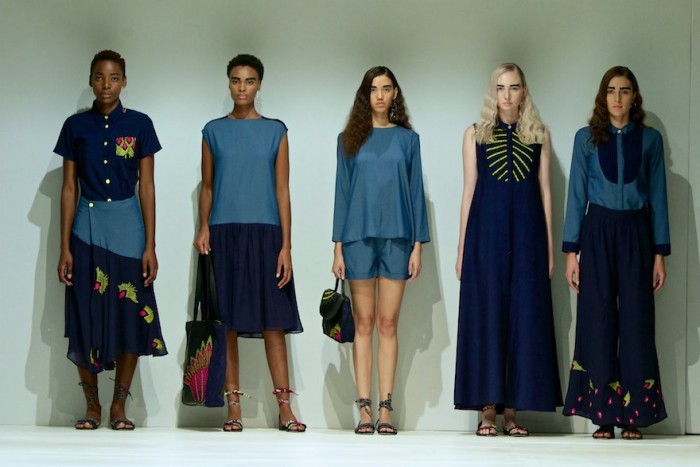My eyes are still trained on the golden sneakers lying by the entrance when fashion entrepreneur Lucy Mulima walks in. We're meeting at Skinny Legs, next to Dunkley Square, which I later find out, has a yoga studio upstairs, explaining the golden sneakers by the door and many other shoes that pile on as we continue our chat.
Growing up in Zambia, Mulima was always surrounded by women who wore printed fabrics. But it was only in 2014, after years of living in Cape Town, that she went home for three months and went "print-mad" because all of sudden she was surrounded by beautiful prints everywhere and she would just buy fabric and ask tailors to make clothes for her. "A friend in Zambia had a clothing emporium and suggested I do a small range and she would stock it in her shop," she says she took it lightly at the time but eventually took her up on the offer.
Her trip home was the result of a change in South African immigration law that now required her to go back to her home country in order to renew her visa. But that period would also mark a change in career direction for her because upon coming back to South Africa, she started her fashion label and online store, Aya Goods.
The name Aya means fern and it is inspired by the Adinkra symbols of the Ashanti people in Ghana. The symbols are used in fabric, pottery and even furniture and each has a distinct meaning. Aya represents perseverance, endurance and defiance. She says that when the Ashanti weave a cloth for you it is supposed to have a symbol that speaks to your character, "Aya is that person. They are defiant."
When she came back to Cape Town, she erolled for a patternmaking and garment construction course at the Design Academy of Fashion and started building her business from scratch. She owned a shop at the Johannesburg fashion hub, Work Shop New Town for about six months but running a business from Cape Town proved to be difficult.
"I thought because I have a good product, people will come... But I needed to have systems in place from signing lease agreements, stocktaking, dealing with employees... I had to buy myself out of the lease and it was a hard lesson for me to learn about being a small business and dealing with corporates."
Now she depends on her online store for sales as well as marketing herself through her Facebook and Instagram page. Her clothes are also stocked at Convoy in Cape Town and she also visits pop-up markets from time to time: "Pop-up markets are very important to me because that is where I get to connect with the customer."
Her range includes women's clothing, bags and shoes but for her this is only the beginning. And as someone who grew up around women who wore prints, it tends to bring back a lot of nostalgia. But it also means her print selection is always very specific and she can spot the difference between good and bad fabrics, something that not a lot of people are good at.
Having presented a range at the South African Fashion Week earlier this year, Mulima says she will also be one of the designers exhibiting her work at the Sanlam Handmade Contemporary Fair in October.
In terms of future plans, she says: "Fashion today, tomorrow could be furniture, for all I know."









